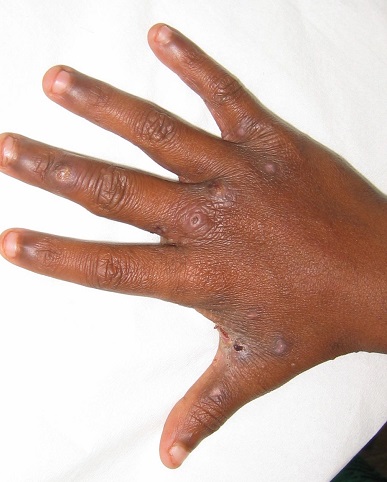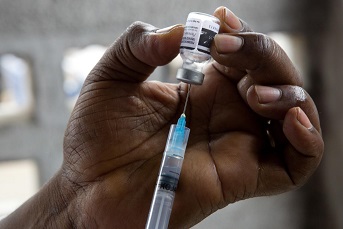
3454 cases of scabies countrywide from January to March

Around 3454 cases of scabies were recorded countrywide from January to March, an official said this week.
The most affected populations are communities living along the northern borders, school learners in the affected regions and migrant populations in urban and peri-urban areas where access to water and sanitation facilities is lacking or inadequate, the Minister of Health and Social Services, Dr Kalumbi Shangula said at a press conference.
Human scabies is a parasitic infestation caused by Sarcoptes scabiei var hominis. The microscopic mite burrows into the skin and lays eggs, eventually triggering a host immune response that leads to intense itching and rash.
“Scabies infestation may be complicated by bacterial infection, leading to the development of skin sores that, in turn, may lead to the development of more serious consequences such as septicaemia, heart disease and chronic kidney disease,” he added.
According to the WHO, scabies is one of the most common dermatological conditions, accounting for a substantial proportion of skin diseases in developing countries. Globally, it is estimated to affect more than 200 million people.
Shangula urged the public to maintain good hygiene and sanitation, including hand washing.
“Further investigations to establish the magnitude and cause of scabies transmission are ongoing and public health measures have been activated by the health teams in the affected regions in partnership with line ministries such as the Ministry of Education. All detected cases are undergoing treatment in the health facilities,” he said.
Meanwhile, according to Shangula, the current transmission of scabies has moved from households to schools with challenges of water supply and where personal hygiene is less than adequate.












































